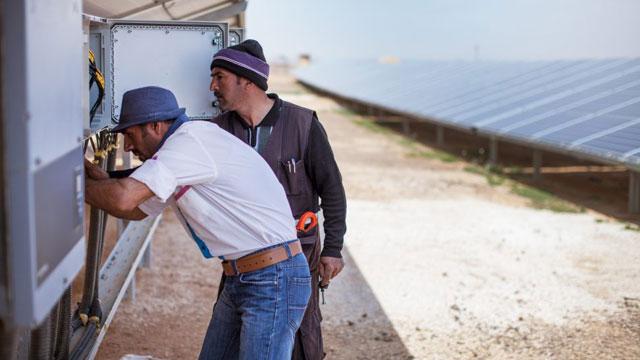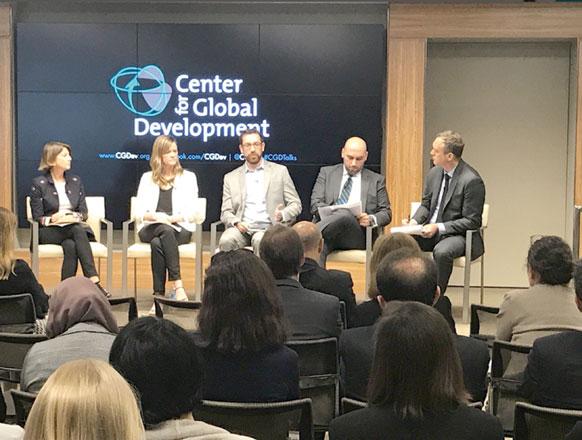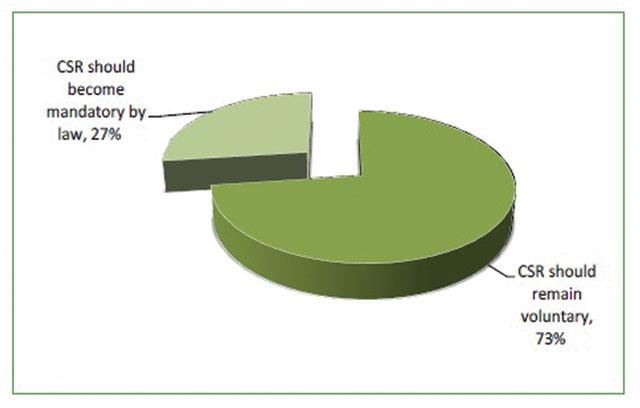You are here
Global companies can help solve refugee crisis — report
By Camille Dupire - Sep 27,2017 - Last updated at Sep 27,2017

Syrian refugees are seen working on the maintenance of temporary homes provided by a joint private-public sector partnership in the Azraq camp (Photo courtesy of IKEA Foundation)
AMMAN — Global businesses can make unique and valuable contributions to the refugee response by engaging refugees not as aid recipients, but as employees, producers, investees and customers, a recent report by the Centre for Global Development (CGD) stated.
An independent non-profit research organisation, CGD aims to find policy solutions to reduce global poverty and inequality. In the report, titled “Global Business and Refugee Crises”, CGD has partnered with the Tent Foundation to identify the sustainable ways global businesses use to help address refugee crises while maintaining their position as market dominating entities.
Focusing on opportunities in developing countries, where more than 85 per cent of the world’s refugees live and where governments have lower capacity and fewer resources to respond to refugee needs, the report highlighted the global businesses’ potentially catalytic role in the humanitarian aid field.
Drawing from the example of several global companies’ engagement in the refugee response in Jordan, the report showed how global entreprises can achieve social impact, gain reputational benefits, and build brand loyalty by including refugees in their core business activities, while maintaining their commercial gains.
In light of the centrality of the refugee crisis in Jordan, which currently hosts around 1.4 million refugees according to the UNHCR, IKEA’s strategy has evolved from corporate social responsibility (CSR) to core business production centres supporting sustainable livelihoods for both refugees and their host communities, the report indicated.
After engaging through CSR donations, including initiatives to bring renewable energy to refugee camps and to provide temporary homes to refugees through Better Shelter, a social enterprise that produces a lightweight, modular shelter, IKEA announced a partnership with the Jordan River Foundation that aims to employ 200 Syrian refugees and Jordanians to make hand-woven rugs, textiles and other products for stores worldwide within five years.
Due to their position as market leaders, policy influencers, and innovators, global entreprises have some distinctive capacities for engagement and advocacy that do not exist within the traditional refugee response community, Cindy Huang, senior policy fellow at CGD, told The Jordan Times on Wednesday.
Economically empowering Syrian refugees living in Jordan has also become a key aspect of the American supermarket chain Safeway Inc.’s business strategy in the Kingdom.
The Andalus Dairy Factory, operated by the Cattle Farmers Association in Irbid and owned by a Syrian national, has agreed to supply two of Safeway’s stores in Amman, with plans to expand to the Safeway in Zaatari camp, the report showed.
For Huang, that increased involvement of global businesses in the refugee sector has various complementary explanations: “More and more companies seek profit alongside social and environmental outcomes, including helping to meet humanitarian needs.”
The establishment of a Safeway supermarket in Zaatari has for instance created a source of employment opportunities, with a staff of both Jordanian nationals and Syrian refugees who have been trained in new skills for employment.
By pursuing philanthropic motives, these businesses also respond to their customers’ brand consciousness and work to sustainably enlarge their market outreach, the report pointed out. Indeed, a number of companies perceive opportunities to reach crisis-affected populations as new customers for products and services.
“While more progress is needed, Jordan is a relative leader in taking steps to engage global businesses as partners in addressing the refugee crisis. We have seen this through its partnership with the World Bank, EU, and others to unlock private sector investment tied to exports to Europe — as well as important policy reforms that enable refugees to work legally,” Huang underscored.
The recent changes in national policy, including the first of its kind issuance of temporary work permits for Syrians as of August, are part of the steps taken to empower refugees in Jordan. For the report, global companies therefore have a strategic interest in contributing to those national efforts that mitigate the potentially destabilising consequences of a refugee influx.
Huang acknowledged: “It is still too early to judge the impact of global business involvement in the Jordanian refugee response; they have a lot to contribute and could have a significant impact.”
“But it will take a lot of hard work and partnership between the government, civil society, and businesses to create sustainable economic opportunities for refugees and host communities,” she concluded.
Related Articles
AMMAN — Policymakers, academics and government officials from around the globe recently gathered in Washington DC to discuss new ways to tac
Corporate Social Responsibility (CSR) is still "failing to deliver" in a country where economic challenges are getting more chronic and doubled by turmoil, according to economic experts.
AMMAN — His Majesty King Abdullah on Sunday received Range and Supply Manager at IKEA Group Jesper Brodin at Al Husseiniya Palace, according


















